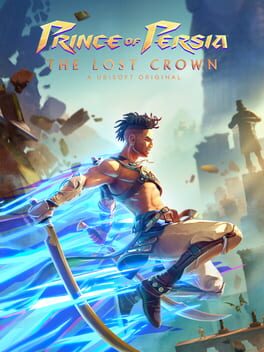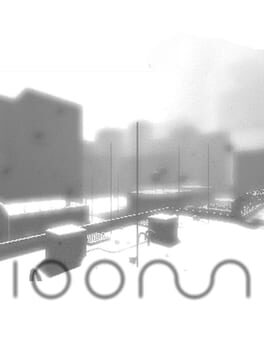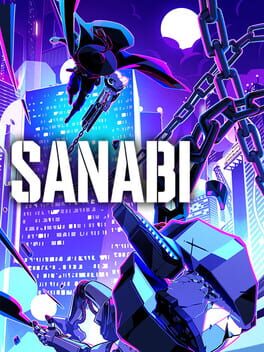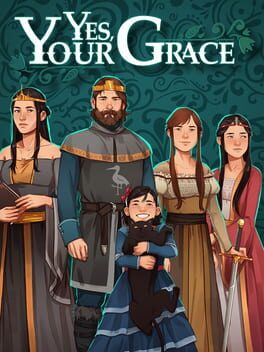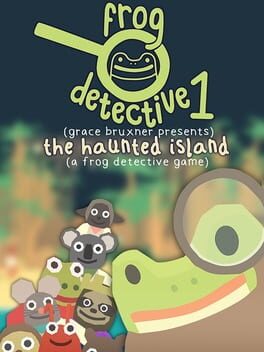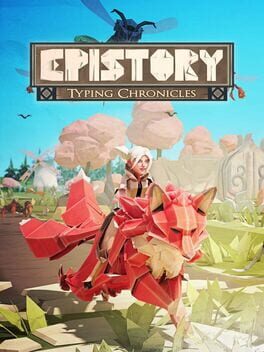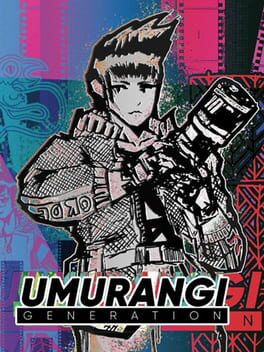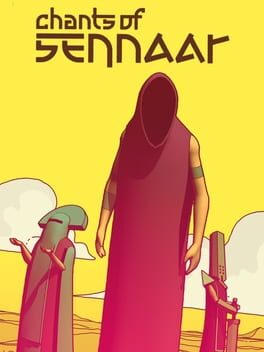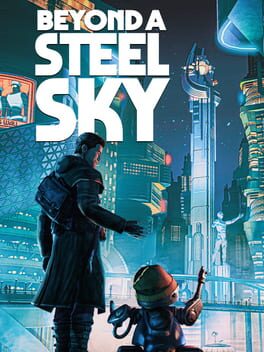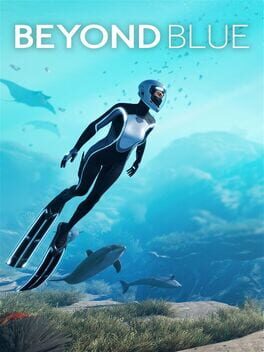mordwywr
212 Reviews liked by mordwywr
Citizen Sleeper
2022
[ played via steam deck ]
So, I've had a load of games I've wanted to get through in the beginning of 2024. I've played a pretty good spread of genres and qualities and got hit with both a blessing and curse: a two-day long, still ongoing power outage. I got sick of playing the things I've been getting through so I took a break with this one. Sitting in the pitch dark, I wasn't sure what to expect, but I... enjoyed my time with it, I think? Although I felt very underwhelmed once I realize how shallow the world, the systems, and the characters were.
It's weird to say, and it sounds a bit pretentious, but have you ever played a game and been struck by the realization that you are not the target audience? Not because the game doesn't appeal to you in themes or genre, but because it feels like its targeting players unfamiliar with what its trying to be? Thats what Citizen Sleeper has felt like to me. I don't like saying it, but it's true, and it boggles my mind ever so slightly because resource management simulators in the way CS presents itself are not new-gamer familiar. Despite this, you are given very long, hand hold-y dumping menus the first time you interact with people, with systems that seem to serve no.. real purpose? After only an hour or two, I had gamed the system well enough to not feel any of its difficulty. Despite the many paths in its story, I never felt pressured or had the fear I couldn't feasibly complete the content available to me. I don't think every game HAS to be difficult or lock me out of content and require many playthroughs (i honestly hate it when games do this), but CS's world would have been the most perfecf place for this and it rarely comes up. You can encounter different endings, yes, but it is entirely possible to accidentally stumble into every piece of content even if you don't fully understand the systems. I was very confused on the condition/energy system for a solid 2+ hours and still managed to complete every time gated prompt with ease thanks to the generous leveling systems and time windows.
In fact, the entire class system is pointless. All it did was ensure that when I finished the game, the stat I had a debuff for was the only one that ended at a +2 bonus rather than a +3. If the stats were fixed or more scarce or even impacted by the choices you made in the story, it would have felt more rewarding to pick and choose what risks you made. Instead, I just chose "what do I have perks for", which often was a +1 or +2 to a critical dice roll, with the option to reroll my dice if they were low costs. There was consistently no stakes present, and the one part of the game (the 3 part DLC? after stories) that stressed how intense and difficult the window of time would be... I completed it in half the allotted time.
I am not a game designer. I don't have a perfect recommendation on how to fix this in a neat way, but removing the outright stat bonuses to dice and only having perks or only providing bonuses as a result of your choices would help increase the pressure and difficulty a little bit, while still feeling satisfying and not changing the core mechanics so much. There were other issues I had with balancing (by the end of the game I had an overflow of 700 coins, and could effectively buy any of the balancing resources necessary without thinking), but this was probably the most game-breaking. It removed any hint of strategy I faced, and I felt really disappointed by this aspect of the game. I hoped that the story and overall world-building would suffice in picking up this slack, but...
The premise at CS's core was great. I loved the idea of our emulated Sleeper robot self finding their place, seeking refuge and their place in the world. It was fun to meet characters and find new places constantly that made the Eye feel alive, but unfortunately the writing, aside from a few select characters, felt so bland. It is well written for the most part in its prose and when it has things it wants to say, but the actual time we spend with most characters to get to know them is short.
One character I really liked was Tala, a bartender who you meet after facing discrimination for being a Sleeper, and eventually befriend and work for. Unfortunately, you talk to her for a few minutes, do some fetch-dice-quests, and then suddenly you speak in another visual novel-esque sequence and you are already good friends. None of the build up is actually there, on screen, and while I still liked the relationship the MC and Tala have and the things I learn about her, it still feels like I'm not even experiencing this in my own story. It happens without me, and this occurs multiple times with other NPCs. The after stories fix this and is genuinely the better part of Citizen Sleeper's entire campaign, but it happens so late. You're given brief impressions of characters and asked to invest in them, and you do and you can, but I wish that 75% of them had been expanded on whatsoever. Feng was wonderful, as well as Peake and Riko, but they are also the few characters who have long and sprawling storylines that interweave with the Eye's political turmoil and each other's struggles at least tangentially.
Even the big political factions are only brief mentions with little impact on the story until the absolute end (and it still feels tacked on). You can choose to provide intel and complete stories where you side with conflicting political factions and rise in their ranks but it never reflects elsewhere.
Citizen Sleeper takes itself seriously, but feels too shy to commit fully to anything. It doesnt want to give you complex narratives, maybe because it doesn't have faith that the dice mechanics are capable of supplementing the decision-making systems, I dont know. But there is a really strong foundation that it fails to capitalize on. I think it's a good game regardless, but that almost makes it worse because I can see so clearly how it could have been great.
I still recommend you pick it up as I enjoyed my time with it, but I dont know... I see they're making a sequel and I hope that when they do, they aren't afraid to be more in-depth with the mechanics and storytelling at hand.
So, I've had a load of games I've wanted to get through in the beginning of 2024. I've played a pretty good spread of genres and qualities and got hit with both a blessing and curse: a two-day long, still ongoing power outage. I got sick of playing the things I've been getting through so I took a break with this one. Sitting in the pitch dark, I wasn't sure what to expect, but I... enjoyed my time with it, I think? Although I felt very underwhelmed once I realize how shallow the world, the systems, and the characters were.
It's weird to say, and it sounds a bit pretentious, but have you ever played a game and been struck by the realization that you are not the target audience? Not because the game doesn't appeal to you in themes or genre, but because it feels like its targeting players unfamiliar with what its trying to be? Thats what Citizen Sleeper has felt like to me. I don't like saying it, but it's true, and it boggles my mind ever so slightly because resource management simulators in the way CS presents itself are not new-gamer familiar. Despite this, you are given very long, hand hold-y dumping menus the first time you interact with people, with systems that seem to serve no.. real purpose? After only an hour or two, I had gamed the system well enough to not feel any of its difficulty. Despite the many paths in its story, I never felt pressured or had the fear I couldn't feasibly complete the content available to me. I don't think every game HAS to be difficult or lock me out of content and require many playthroughs (i honestly hate it when games do this), but CS's world would have been the most perfecf place for this and it rarely comes up. You can encounter different endings, yes, but it is entirely possible to accidentally stumble into every piece of content even if you don't fully understand the systems. I was very confused on the condition/energy system for a solid 2+ hours and still managed to complete every time gated prompt with ease thanks to the generous leveling systems and time windows.
In fact, the entire class system is pointless. All it did was ensure that when I finished the game, the stat I had a debuff for was the only one that ended at a +2 bonus rather than a +3. If the stats were fixed or more scarce or even impacted by the choices you made in the story, it would have felt more rewarding to pick and choose what risks you made. Instead, I just chose "what do I have perks for", which often was a +1 or +2 to a critical dice roll, with the option to reroll my dice if they were low costs. There was consistently no stakes present, and the one part of the game (the 3 part DLC? after stories) that stressed how intense and difficult the window of time would be... I completed it in half the allotted time.
I am not a game designer. I don't have a perfect recommendation on how to fix this in a neat way, but removing the outright stat bonuses to dice and only having perks or only providing bonuses as a result of your choices would help increase the pressure and difficulty a little bit, while still feeling satisfying and not changing the core mechanics so much. There were other issues I had with balancing (by the end of the game I had an overflow of 700 coins, and could effectively buy any of the balancing resources necessary without thinking), but this was probably the most game-breaking. It removed any hint of strategy I faced, and I felt really disappointed by this aspect of the game. I hoped that the story and overall world-building would suffice in picking up this slack, but...
The premise at CS's core was great. I loved the idea of our emulated Sleeper robot self finding their place, seeking refuge and their place in the world. It was fun to meet characters and find new places constantly that made the Eye feel alive, but unfortunately the writing, aside from a few select characters, felt so bland. It is well written for the most part in its prose and when it has things it wants to say, but the actual time we spend with most characters to get to know them is short.
One character I really liked was Tala, a bartender who you meet after facing discrimination for being a Sleeper, and eventually befriend and work for. Unfortunately, you talk to her for a few minutes, do some fetch-dice-quests, and then suddenly you speak in another visual novel-esque sequence and you are already good friends. None of the build up is actually there, on screen, and while I still liked the relationship the MC and Tala have and the things I learn about her, it still feels like I'm not even experiencing this in my own story. It happens without me, and this occurs multiple times with other NPCs. The after stories fix this and is genuinely the better part of Citizen Sleeper's entire campaign, but it happens so late. You're given brief impressions of characters and asked to invest in them, and you do and you can, but I wish that 75% of them had been expanded on whatsoever. Feng was wonderful, as well as Peake and Riko, but they are also the few characters who have long and sprawling storylines that interweave with the Eye's political turmoil and each other's struggles at least tangentially.
Even the big political factions are only brief mentions with little impact on the story until the absolute end (and it still feels tacked on). You can choose to provide intel and complete stories where you side with conflicting political factions and rise in their ranks but it never reflects elsewhere.
Citizen Sleeper takes itself seriously, but feels too shy to commit fully to anything. It doesnt want to give you complex narratives, maybe because it doesn't have faith that the dice mechanics are capable of supplementing the decision-making systems, I dont know. But there is a really strong foundation that it fails to capitalize on. I think it's a good game regardless, but that almost makes it worse because I can see so clearly how it could have been great.
I still recommend you pick it up as I enjoyed my time with it, but I dont know... I see they're making a sequel and I hope that when they do, they aren't afraid to be more in-depth with the mechanics and storytelling at hand.
Loom
2023
A blindingly bright sun sharpens and softens the silhouette of a cityscape. Short trips under the surface show its inner workings, illuminated artificially and by sunlight piercing through perforations in the hull. It does feel like a walk around the city during a cold clear winter day, the infinite blue sky replaced by a brightness your eyes can't adjust to, the details of the structures so bright and detailed they become abstract.
I'm not very familiar with Oliver Shore's work - I've been introduced to it by NaissanceE and some shared ideas are certainly present here, but it feels less mysterious and oppressive, more playful even, more intimate and person-scaled. Interesting is the use of transparent, organic and sometimes living shapes that seem to be an important motif in the author's work, but I frankly don't know enough about it.
It obviously is very abstract and short - and inspirational. I'll think about how it's using the sun, shadows and most surprisingly aliasing - the very low resolution forcing jagged edges, broken lines and moire effects on you; an unwanted artifact with hundreds of man-hours spent on researching and eliminating it given a new role. Why not give the unwanted another chance - let's take a walk beneath the highway in the sky.
I'm not very familiar with Oliver Shore's work - I've been introduced to it by NaissanceE and some shared ideas are certainly present here, but it feels less mysterious and oppressive, more playful even, more intimate and person-scaled. Interesting is the use of transparent, organic and sometimes living shapes that seem to be an important motif in the author's work, but I frankly don't know enough about it.
It obviously is very abstract and short - and inspirational. I'll think about how it's using the sun, shadows and most surprisingly aliasing - the very low resolution forcing jagged edges, broken lines and moire effects on you; an unwanted artifact with hundreds of man-hours spent on researching and eliminating it given a new role. Why not give the unwanted another chance - let's take a walk beneath the highway in the sky.
Sanabi
2023
Yes, Your Grace
2020
"i'm good at typing, i don't need prove anything." so i decided to get this on switch. but if you're good at typing it's all the more reason to play this on a keyboard because the waves of enemies can get very chaotic very fast and suddenly you're mashing ABXY and wishing you just had listened to the warnings, dug out your usb converter from the closet, and connected it to the damn keyboard. also the switch screen is damn SMALL and you'll be squinting and crying and you can't see the words through your tears. good game otherwise
Baldur's Gate 3
2023
there are two kinds of reading-heavy crpgs: the novel kind and the taxes kind. disco elysium and dragon age are the novel kind. pillars of eternity is both. bg3 is strictly the taxes kind. if you enjoy micromanaging everything down to who farted in which direction on tuesday and how that affects your spell direction in today’s wind current, you will love this. if you don't enjoy doing that, like me, then you may struggle a bit to just get through it for the story, which is ultimately kind of mediocre and convoluted if you are also, like me, not familiar with dnd lore. but the characters are a lot of fun, and despite the overwhelming amount of content (sometimes less is more, devs, please), if you've been missing fenris and miranda lawson and dorian pavus since bioware's last "succesful" rpg in 2014, well, this definitely fills that hole.
Aka
2022
Umurangi Generation
2020
Being someone who loves the practice and execution of photography, this game scratched an itch that most games can't. The idea of a photography game in this specific style, taking place in the shitty future on the verge of impending doom, absolutely ROCKS. Even with no dialogue, the game conveys its message and atmosphere strongly through effective world-building and interesting imagery. Every corner has something new to see, making for some incredibly cool pictures in the process. The amount of familiar camera add-ons makes for great variety in your pictures, along with every single useful editing tool to give them that extra flair. I will say that the camera did bug out for me at times, refusing to switch lenses after activating the flash, but other than that the UI is super easy and intuitive for beginners and seasoned photographers.
For me, photography has always been important in capturing specific moments, memorable moments that you will look back on and happily cherish for the rest of your life. This game is easily the closest thing to replicate this feeling, as the more I capture Umurangi, the more and more I fall in love with it. I couldn't recommend this enough.
For me, photography has always been important in capturing specific moments, memorable moments that you will look back on and happily cherish for the rest of your life. This game is easily the closest thing to replicate this feeling, as the more I capture Umurangi, the more and more I fall in love with it. I couldn't recommend this enough.
Autumn Hike
2023
It's just your average walking simulator. It has pretty graphics and chill soundtrack, but that's it. There is no story, nothing exciting in the map and the environment is pretty repetitive. You have a few Hike Goals that you need to find, but they were pretty easy to find as long as you had a method to your walking around the map.
It's not really worth it to buy, I guess if you can get it for really really cheap then yeah, do it, but still I think your time is used better elsewhere.
It's not really worth it to buy, I guess if you can get it for really really cheap then yeah, do it, but still I think your time is used better elsewhere.
Chants of Sennaar
2023
In an earnest attempt to make a unique and emotional point-and-click game, Rundisc haven't quite managed to temper their ambitions and focus on the important parts.
It stands to reason that in a game all about various peoples being torn apart and pitted against each other by isolation brought about through archaic, othering traditions, you'd want to represent the actual pressure points between these groups in gameplay, show and not just tell. But doing so through goofy, ill-fitting stealth segments and boring roadblocks is hardly an interesting way to go about it. All the backtracking doesn't help the issue at all either, nor do the actual multiple mazes that you sometimes have to go through actual multiple times.
In the same vein, perhaps there needed to be more dialogue written to show the delusions the peoples of the tower harbour about each other. The bards talk about living in pure bliss and call you (and also everyone else) an idiot, and the warriors deem devotees to be akin to demons, but the devotees themselves barely have a social hierarchy to speak of, much less concrete beliefs about the other groups living in the tower. The scientists, in the meantime, are really just caught in everyone else's bullshit, wanting only to learn all there is about the world they find themselves in. And these divisions are very easily overcome: just translate the devotees' plea for an irigation system, and inform the bards' slaves that they can live free in the abbey. As a result of this whole "peoples torn apart" thing feeling underdeveloped, the 'true' ending feels good, but a bit forced, with decades, perhaps centuries of tribalism overcome, really, with just a couple conversations.
I'd be happy to treat this narrative as a cute little parable about how ignorance breeds bigotry and understanding begets unity and prosperity for all, but this specific part of the story just wasn't given enough attention. In the moment-to-moment, though the player character is explicitly a drone created to bridge the tower's divides, this is a tale of your journey. You get to desipher all these languages, you find out the histories and cultures of these people, and you are the hero who gets rid of this weird AI thing at the end. Even though Chants of Sennaar treats you as a literal translator-robot, it still tells your story, and the moment at the end, where every group in the tower gathers at the top to find out that (I think?) all their most central ideas are really the same and that they share a similar goal...feels somehow incidental.
But truth be told, even though a good bit of this game felt undercooked and unpolished, these small moments of you establishing connections between the different inhabitants of the tower, plus the deeply earnest final stretch, make this game a worthwhile experience. It's not GOTY material, but it doesn't need to be that to still have its fair share of brilliance.
It stands to reason that in a game all about various peoples being torn apart and pitted against each other by isolation brought about through archaic, othering traditions, you'd want to represent the actual pressure points between these groups in gameplay, show and not just tell. But doing so through goofy, ill-fitting stealth segments and boring roadblocks is hardly an interesting way to go about it. All the backtracking doesn't help the issue at all either, nor do the actual multiple mazes that you sometimes have to go through actual multiple times.
In the same vein, perhaps there needed to be more dialogue written to show the delusions the peoples of the tower harbour about each other. The bards talk about living in pure bliss and call you (and also everyone else) an idiot, and the warriors deem devotees to be akin to demons, but the devotees themselves barely have a social hierarchy to speak of, much less concrete beliefs about the other groups living in the tower. The scientists, in the meantime, are really just caught in everyone else's bullshit, wanting only to learn all there is about the world they find themselves in. And these divisions are very easily overcome: just translate the devotees' plea for an irigation system, and inform the bards' slaves that they can live free in the abbey. As a result of this whole "peoples torn apart" thing feeling underdeveloped, the 'true' ending feels good, but a bit forced, with decades, perhaps centuries of tribalism overcome, really, with just a couple conversations.
I'd be happy to treat this narrative as a cute little parable about how ignorance breeds bigotry and understanding begets unity and prosperity for all, but this specific part of the story just wasn't given enough attention. In the moment-to-moment, though the player character is explicitly a drone created to bridge the tower's divides, this is a tale of your journey. You get to desipher all these languages, you find out the histories and cultures of these people, and you are the hero who gets rid of this weird AI thing at the end. Even though Chants of Sennaar treats you as a literal translator-robot, it still tells your story, and the moment at the end, where every group in the tower gathers at the top to find out that (I think?) all their most central ideas are really the same and that they share a similar goal...feels somehow incidental.
But truth be told, even though a good bit of this game felt undercooked and unpolished, these small moments of you establishing connections between the different inhabitants of the tower, plus the deeply earnest final stretch, make this game a worthwhile experience. It's not GOTY material, but it doesn't need to be that to still have its fair share of brilliance.
Beyond a Steel Sky
2020
A tale of media illiteracy.
You see signs of the game not trusting the player to understand information very early on - it encourages you to ask the same thing multiple times to really make sure that you know what you need to do (on top of the existing hint system), but the answers only change slightly each time, creating a lot of repetition. Especially early on, your character is bewildered by pretty much everything and has to ask the most obvious things - and this is not related to the trope of an outlander coming to a high-tech area. You initially think nothing of it, assuming they were just quirks of the devs trying to help you.
But it just gets worse. As the tension builds up, you come to an incredibly disappointing Marvel-esque cutscene that makes absolutely no sense, is completely avoidable and foreseeable and ends with, of course, a sacrifice and a tearful goodbye. It does literally nothing for the story, no character arc has been changed, nothing in the world is different.
The actual ending is what broke me. The idea of man vs machine, empathy vs logic, and the interpretation of happiness is not new - in fact it's a mainstay of the sci-fi genre (though at least we avoided the ubiquitous utilitarianism topic for today). And this game presents an absolutely naive interpretation of it. Firstly, it concludes at 'this one specific obviously bad way of making everyone happy is not good', without challenging the innate notion of happiness being the end goal. Secondly, and most importantly, the end sequence is literally you using the power of logic against a machine that for some reason didn't see the issues with its own bad logic. You, the player, don't even get to think - you just solve the kid's version of a rubik's cube and the protagonist automatically does the arguing for you - no thinking necessary! In an even more child-like manner, the different opponents you defeat using the power of logic cower and disappear (forever), and the antagonist then... dies for some reason.
Why is this so childish? This the dream sequence, the l'esprit de l'escalier of rational™ people - that your opponents will listen to you, you have all the answers, and your opponent will then back down because your power of logic is just too strong. In a way, you can interpret it as a hopeful appeal to democracy, to activists who can change the minds of the people in charge. But while that's true to some extent, in reality it's more than a single person happening to just... go to the people in charge (which nobody else did) with a perspective from outside (because everyone inside is brainwashed) and the people just listen and accept whatever you say (because they were solely in charge because they think they're doing what's best for everyone, even if they're wrong).
Overall, the Obvious Bad Thing (kidnapping children) that happened at the beginning and is the motivation for the entire journey turns out to be... not really connected to the overarching theme. It's not actually pivotal to anything that's happening in the city, it's explained away in a single line. Even worse, it provides the protagonist a counterargument for the previous battle using the power of logic - so it can't even challenge its own assumptions labelled as 'bad' on a fundamental level, it has to resort to things that the writers themselves made up. This also applies to the apparent resource exploitation of another city which, if you haven't played the previous game, gets mentioned one or two times tops - the theme doesn't imply such an exploitation must happen, but it provides an argument because otherwise you couldn't have easily defeated an opponent using the power of logic.
At least it covers the theme of a social credit system, but to a very limited extent. What happens as the citizens get infinite Qdos (their social credit system) and are basically freed? We don't know, it doesn't get explored. Neither do we get even a hint of discussion that human governance (after defeating the evil robots) isn't great either - at most by looking back at 'the old city' (bad) but it doesn't get explained, maybe it was in the prequel game.
I feel like I keep writing about games that do boring interpretations of their themes, but I never see a base version of them done well. I do wonder if I have to give some older game or media credit for that, but I don't think I've played/read/watched them then. At the same time, it feels cheap to recognize a genre mostly because of themes that I often identify as lazy. Maybe we're just beyond that, and this game is from 2020 anyway.
I still do appreciate its creative hacking games, the voice acting and actually the more interesting faces of the people you meet - literally. Its tone is also fun, which kind of excuses its random quirks.
Just like Ghostrunner, it has some okay gameplay which might be worth its while but the pure disrespect shown towards the player during the thematic conclusion makes it unworthy of recommendation. Play State of Mind or maybe even Whispers of a Machine instead.
You see signs of the game not trusting the player to understand information very early on - it encourages you to ask the same thing multiple times to really make sure that you know what you need to do (on top of the existing hint system), but the answers only change slightly each time, creating a lot of repetition. Especially early on, your character is bewildered by pretty much everything and has to ask the most obvious things - and this is not related to the trope of an outlander coming to a high-tech area. You initially think nothing of it, assuming they were just quirks of the devs trying to help you.
But it just gets worse. As the tension builds up, you come to an incredibly disappointing Marvel-esque cutscene that makes absolutely no sense, is completely avoidable and foreseeable and ends with, of course, a sacrifice and a tearful goodbye. It does literally nothing for the story, no character arc has been changed, nothing in the world is different.
The actual ending is what broke me. The idea of man vs machine, empathy vs logic, and the interpretation of happiness is not new - in fact it's a mainstay of the sci-fi genre (though at least we avoided the ubiquitous utilitarianism topic for today). And this game presents an absolutely naive interpretation of it. Firstly, it concludes at 'this one specific obviously bad way of making everyone happy is not good', without challenging the innate notion of happiness being the end goal. Secondly, and most importantly, the end sequence is literally you using the power of logic against a machine that for some reason didn't see the issues with its own bad logic. You, the player, don't even get to think - you just solve the kid's version of a rubik's cube and the protagonist automatically does the arguing for you - no thinking necessary! In an even more child-like manner, the different opponents you defeat using the power of logic cower and disappear (forever), and the antagonist then... dies for some reason.
Why is this so childish? This the dream sequence, the l'esprit de l'escalier of rational™ people - that your opponents will listen to you, you have all the answers, and your opponent will then back down because your power of logic is just too strong. In a way, you can interpret it as a hopeful appeal to democracy, to activists who can change the minds of the people in charge. But while that's true to some extent, in reality it's more than a single person happening to just... go to the people in charge (which nobody else did) with a perspective from outside (because everyone inside is brainwashed) and the people just listen and accept whatever you say (because they were solely in charge because they think they're doing what's best for everyone, even if they're wrong).
Overall, the Obvious Bad Thing (kidnapping children) that happened at the beginning and is the motivation for the entire journey turns out to be... not really connected to the overarching theme. It's not actually pivotal to anything that's happening in the city, it's explained away in a single line. Even worse, it provides the protagonist a counterargument for the previous battle using the power of logic - so it can't even challenge its own assumptions labelled as 'bad' on a fundamental level, it has to resort to things that the writers themselves made up. This also applies to the apparent resource exploitation of another city which, if you haven't played the previous game, gets mentioned one or two times tops - the theme doesn't imply such an exploitation must happen, but it provides an argument because otherwise you couldn't have easily defeated an opponent using the power of logic.
At least it covers the theme of a social credit system, but to a very limited extent. What happens as the citizens get infinite Qdos (their social credit system) and are basically freed? We don't know, it doesn't get explored. Neither do we get even a hint of discussion that human governance (after defeating the evil robots) isn't great either - at most by looking back at 'the old city' (bad) but it doesn't get explained, maybe it was in the prequel game.
I feel like I keep writing about games that do boring interpretations of their themes, but I never see a base version of them done well. I do wonder if I have to give some older game or media credit for that, but I don't think I've played/read/watched them then. At the same time, it feels cheap to recognize a genre mostly because of themes that I often identify as lazy. Maybe we're just beyond that, and this game is from 2020 anyway.
I still do appreciate its creative hacking games, the voice acting and actually the more interesting faces of the people you meet - literally. Its tone is also fun, which kind of excuses its random quirks.
Just like Ghostrunner, it has some okay gameplay which might be worth its while but the pure disrespect shown towards the player during the thematic conclusion makes it unworthy of recommendation. Play State of Mind or maybe even Whispers of a Machine instead.
Beyond Blue
2020
You know... good intentions and all, but it actually manages to surpass Abzu even though it's a much tamer, less artsy, more narratively confused version. That's pretty much it, the game is a thin abstraction layer over an ocean documentary which unsurprisingly is interesting. As such, it's not to be treated as a normal game, but rather a science communication device which it does well enough - but still leaves you yearning for more, because... well if you just connected it to Abzu's artistic direction (Beyond Blue isn't like hard, current science anyway) and an actual narrative, it could just achieve the goal that itself mentions right at the start: if you could anchor whales in our culture, then maybe we could save them.
Cocoon
2023
This was an amazing puzzle game. I found all but 2 of the moon ancestors, but I don't think there's a lot of immediate replay value available for me to go back and grab the last two. I was hoping to have found them all naturally, but they were fun little bonuses. It started a little slow, but it was just easing me into the intricate puzzle design later on as you have to balance several different mechanics at once.
Visually, the game is great. The biomechanical region was stunning, and the other regions are all just as unique.
The sound complements the graphic design while doing a great job at indicating when you are following the right path with certain puzzles.
I was surprised at how much I enjoyed the various bosses in this cute puzzle game.
I could revisit this game in a few months once I've forgotten the puzzles.
Visually, the game is great. The biomechanical region was stunning, and the other regions are all just as unique.
The sound complements the graphic design while doing a great job at indicating when you are following the right path with certain puzzles.
I was surprised at how much I enjoyed the various bosses in this cute puzzle game.
I could revisit this game in a few months once I've forgotten the puzzles.
